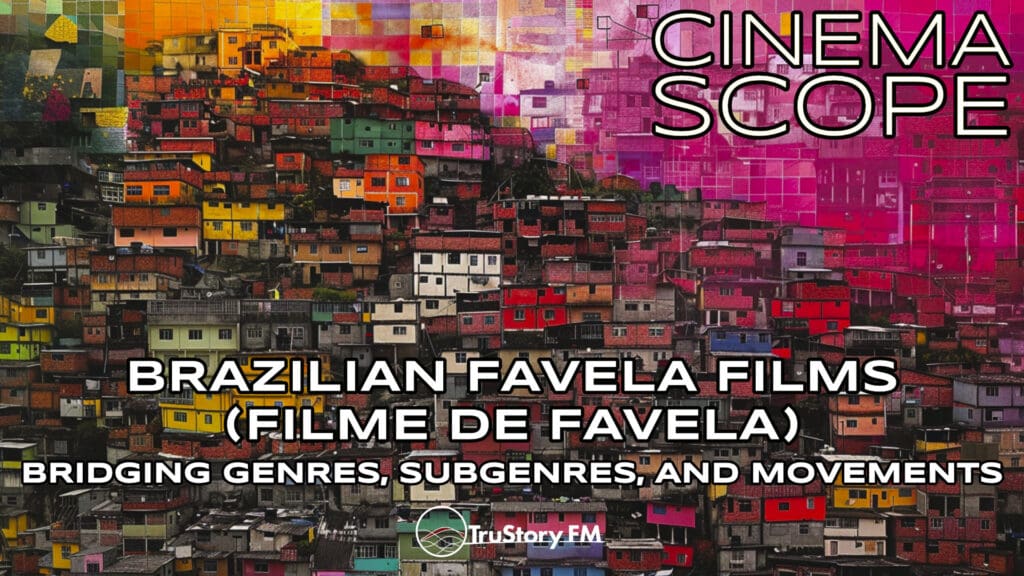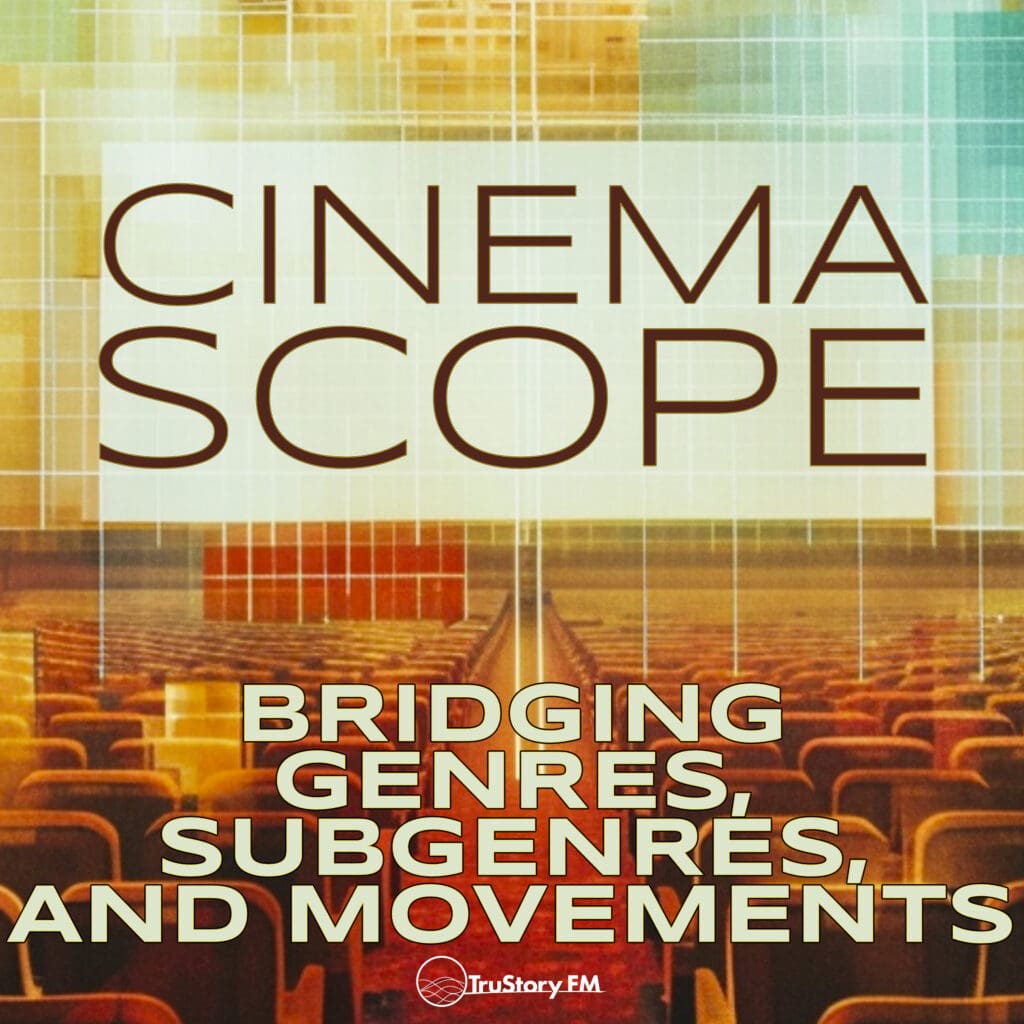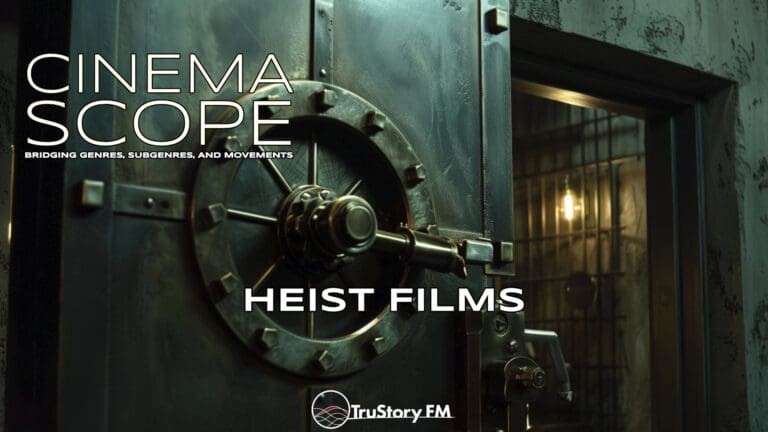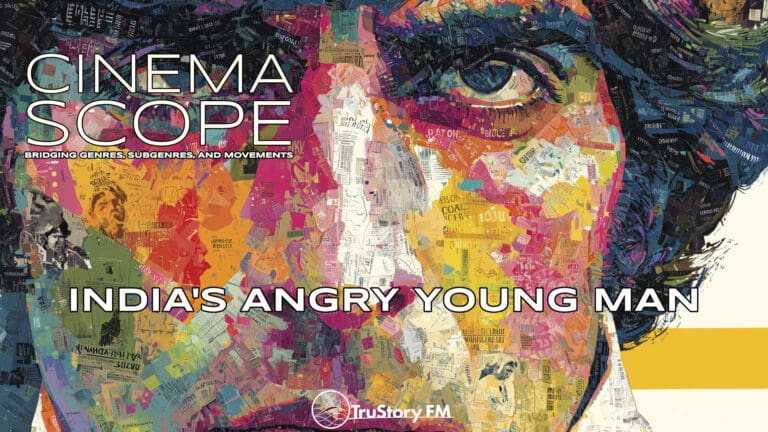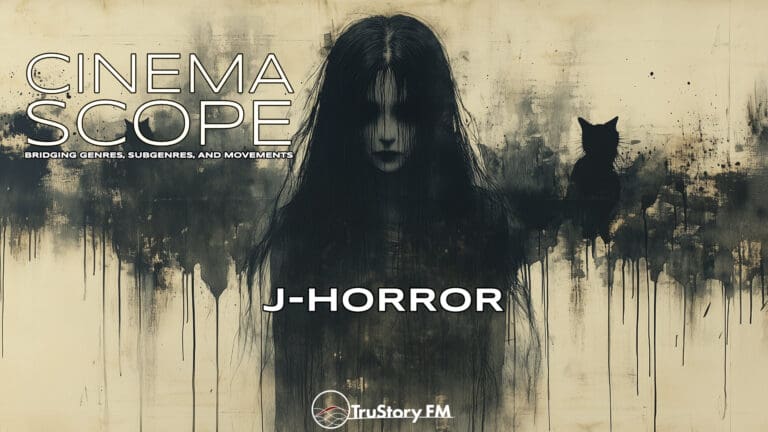In this captivating episode of Cinema Scope, Andy Nelson and his guest Luiza Lusvarghi, a renowned journalist, professor, and researcher, take listeners on a thrilling journey into the heart of Brazilian favela films. This compelling subgenre has garnered international attention for its unflinching portrayal of life in Brazil’s sprawling slums, trading romanticized images for gritty realities.
The Evolution of Brazilian Favela Films
Throughout the episode, Nelson and Lusvarghi explore the evolution of favela films and their neorealist influences. They discuss how later films shifted the focus to the grim realities of street children and organized crime, challenging the perception of Rio as a picturesque postcard city.
Favela Films: More Than Just Crime Dramas
Lusvarghi highlights that the favela theme extends beyond a single subgenre, encompassing both musical dramas and crime dramas that offer a wider range of stories and styles. However, the limited international exposure to primarily crime-focused favela films has influenced the understanding and perception of these communities, often reinforcing stereotypes.
Throughout the episode, Andy and Luiza discuss five essential Brazilian favela films: Rio 40 Degrees (1955), Pixote (1980), City of God (2002), Elite Squad (2007), and Dry Ground Burning (2023). They examine how these films embody the core components of the subgenre, from the use of non-professional actors to the realistic portrayal of social issues and on-location shooting.
Exclusive Member Content: A Deeper Dive into Brazilian Favela Films
For members of The Next Reel family of film podcasts, the conversation continues with an in-depth analysis of five additional films: Rio Northern Zone (1957), Black Orpheus (1959), City of Men (2008), Last Stop 174 (2008), and Elite Squad: The Enemy Within (2010). Become a member to access this bonus content and gain a more comprehensive understanding of the Brazilian favela film subgenre.
Join Andy and Luiza as they illuminate the raw truths behind the lenses and invite listeners to discover the multi-layered world of these powerful cinematic works. From the crime-ridden streets to the struggle for survival, Brazilian favela films offer a window into a world rarely seen on the international stage, challenging perceptions and sparking important conversations about social issues and representation.
About Luiza
Luiza is a journalist, professor, and researcher at the Postgraduate Program in Multimedia at the State University of Campinas, Brazil. She is also a member of the Genecine Group, which focuses on the study of cinematographic and audiovisual genres. Formerly, she served as the director of the Brazilian Association of Film Critics (Abraccine) and is currently an active member of the Elviras Feminist Collective of Film Critics.
Luiza holds a degree in Journalism and a Master’s from The Catholic University of São Paulo, along with a Doctorate and Post-Doctorate in Communication from the University of São Paulo. She has authored several books, including Narrativas Criminais da Ficção Audiovisual da América Latina (Criminal Narratives in Latin American Audiovisual Fiction, 2018), and co-organized the collection Mulheres Atrás das Câmeras: A Chronology of Brazilian Women Filmmakers from 1930 to 2019 (Estação Liberdade, 2018). She is also launching a new series titled Brasil Phantastik in the Cinema.
Her recent research focuses on dystopian representations of women in cinema and their intersections with SciFi, speculative, and fantastic world cinema.
Film Sundries
- Visit Luiza on the web or find her on Facebook, Instagram, Twitter, YouTube, or LinkedIn
- Visit Editora Polytheama’s site, where Luiza is an editor
- Recommended and Discussed Movies
- Rio, 40 Graus (Rio, 40 Degrees) on YouTube
- Rio, Zona Norte (Rio, Northern Zone) on YouTube
- Orfeu Negro (Black Orpheus) on Apple, Amazon, and JustWatch
- Pixote on Amazon and JustWatch
- Cidade de Deus (City of God) on Apple, Amazon, and JustWatch
- Tropa de Elite (Elite Squad) on Apple, Amazon, and JustWatch
- Cidade de Homens (City of Men) on Apple, Amazon, and JustWatch
- Última Parada 174 (Last Stop 174) on Apple, Amazon, and JustWatch
- Tropa de Elite 2 (Elite Squad: The Enemy Within) on Apple, Amazon, and JustWatch
- Mato Seco em Chamas (Dry Ground Burning) on Amazon and JustWatch
- Our Letterboxd List







